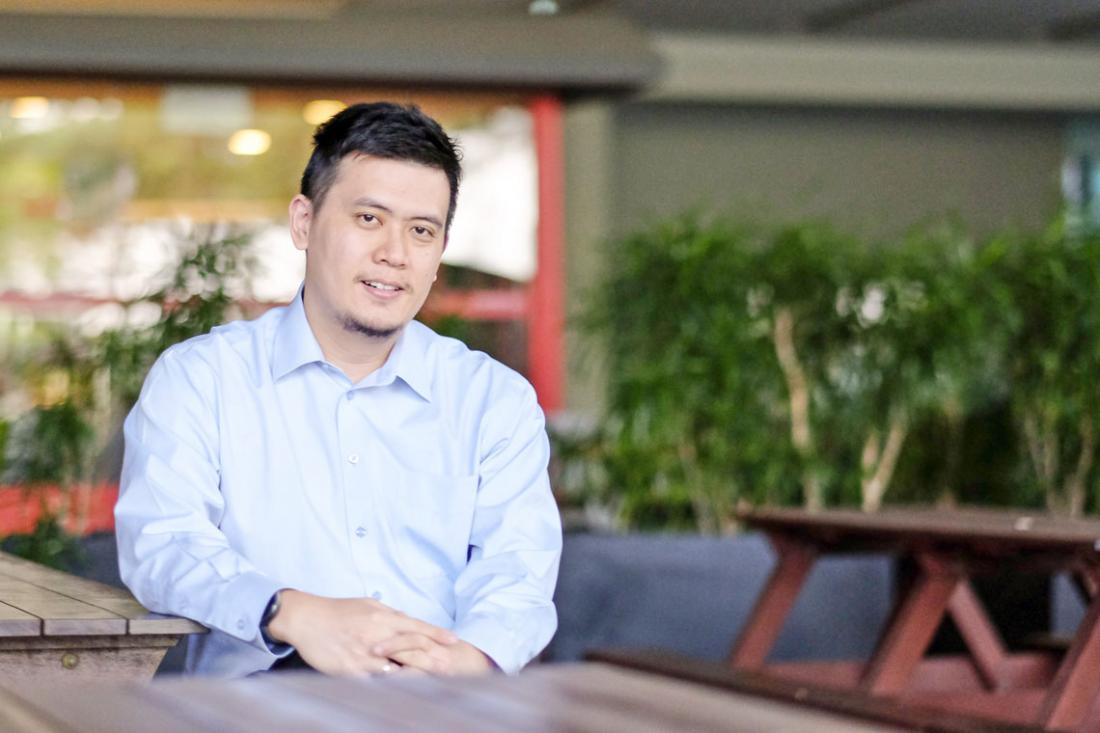Assistant Professor Chen Siyuan
SMU Office of Research – These days, anyone can buy a drone from a shop, send it into the sky and get a panoramic photograph of the landscape. While commercial drones have sparked a boom in amateur aerial photography and videography, governments have also become worried that they could be put to spying, terrorism or other nefarious purposes.
Assistant Professor Chen Siyuan of the Singapore Management University (SMU) School of Law, who specialises in criminal evidence law and civil procedure, has researched and published papers on several such hot-button topics.
From drones to drugs and the death penalty, he has investigated the potential limitations and problems of several much-debated laws in Singapore, including the newly introduced legislation to control the use of drones.
Poor tool for evil
While many other governments have also passed laws on drone use out of fear that the machines could be used by voyeurs or terrorists, or fall out of the sky and hurt people, such concerns are irrational, Professor Chen says in his paper, “The Regulation of the Recreational Use of ‘Drones’ for Aerial Photography and Videography: Comparing Singapore’s Unmanned Aircraft Act with Other Legislation”, published in the Singapore Law Review journal.
“The only explanation for such lightning-speed over-regulation is a fear of the unknown, but the unknown is not the same as the unknowable,” he says.
Take the popular fear that a pervert could use a drone to quietly spy on you while you’re at home. While such a scenario is unsettling, it is also a fantasy, Professor Chen points out.
“Recreational drones are neither suitable for spying nor a smart tool to be used by voyeurs, unless those preyed upon have hearing problems, and even then most drones are rather conspicuous, complete with blinking lights and various moving parts,” he says. “Moreover, a drone that is so small that it can barely be seen will simply be blown away by the slightest of winds.”
Fears that terrorists may use drones to drop bombs or chemicals on an unsuspecting populace are equally overblown. Drones are ill-suited for such acts of mayhem because of their limited flight time on a single battery charge and their inability to carry heavy loads, he notes, adding that no amount of legislation could deter a would-be terrorist anyway.
While Singapore’s Unmanned Aircraft Act, passed in 2015 to regulate drone use, is less restrictive than some other countries’ laws, Professor Chen believes it can be improved. The maximum altitude one can legally fly a drone is currently set at 200 feet above mean sea level, but a more reasonable height limit would be at least 400 feet, he suggests.
The discretionary death penalty and its challenges
Another Singapore law that can be refined is the Misuse of Drugs Act, Professor Chen says. In his paper, “The discretionary death penalty for drug couriers in Singapore: Four challenges”, published in The International Journal of Evidence & Proof, he points out several judicial questions that have arisen after Singapore amended the Act in 2012 to give its courts more discretion in sentencing drug traffickers.
Singapore’s judges can now replace the mandatory death penalty with life imprisonment and caning instead, provided that the accused person shows that he was merely a drug courier, and the prosecution certifies the accused had substantively helped the authorities to disrupt drug trafficking activities.
While the change in the law was hailed by those opposed to the death penalty, it could also have the unintended effect of giving innocent, accused people an incentive to plead guilty from the outset, he says.
Professor Chen also believes that the prosecution should resolve the question of whether an accused person provided substantive assistance before the trial, and use that as a factor to determine the charge that should be brought against him, rather than as a sentencing consideration.
“If the prosecution is already, in a sense, predetermining the eventual fate of an accused drug trafficker through the initial charge that is brought, why should it be involved again for the purposes of sentencing after liability has been determined by the court?” he asks.
Riots and repatriation
In another controversial legal topic, however, Professor Chen sides with the Singapore government. After the riot in Little India in 2013, the Singapore government repatriated 57 migrant workers.
The authorities said that their investigations showed the workers posed a threat to Singapore’s safety and security, and the repatriation was in line with Singapore’s law and international standards. Human rights groups, on the other hand, alleged that the decision was arbitrary and showed a lack of due process and transparency.
As it turned out, the international laws, as least in the context of repatriation, were on the Singapore authorities’ side, says Professor Chen, who wrote up his findings in the paper, “The Little India Riot: Domestic and International Law Perspectives”, published as part of the Third International Conference on Human Rights and Peace & Conflict in Southeast Asia.
“If you look at the United Nations’ Migration Convention, migrant workers can be expelled quite easily without much due process afforded. Even the International Labour Organisation takes the position that under international labour standards, states have considerable discretion in formulating their repatriation laws and policies for their migrant workers,” he explains.
As someone who is drawn to subjects of a socio-political nature, Professor Chen’s most recent work focuses on the admissibility of evidence before international tribunals, which have to take into account different jurisdictions’ systems and cultures.
“It’s difficult to find common ground, so international tribunals have lax rules when it comes to admitting evidence. I’m trying to come up with more principled rules,” he says. And although Singapore generally doesn’t get involved in many international cases, Professor Chen says his research might provide some clarity should such a day occur.
By Feng Zengkun



